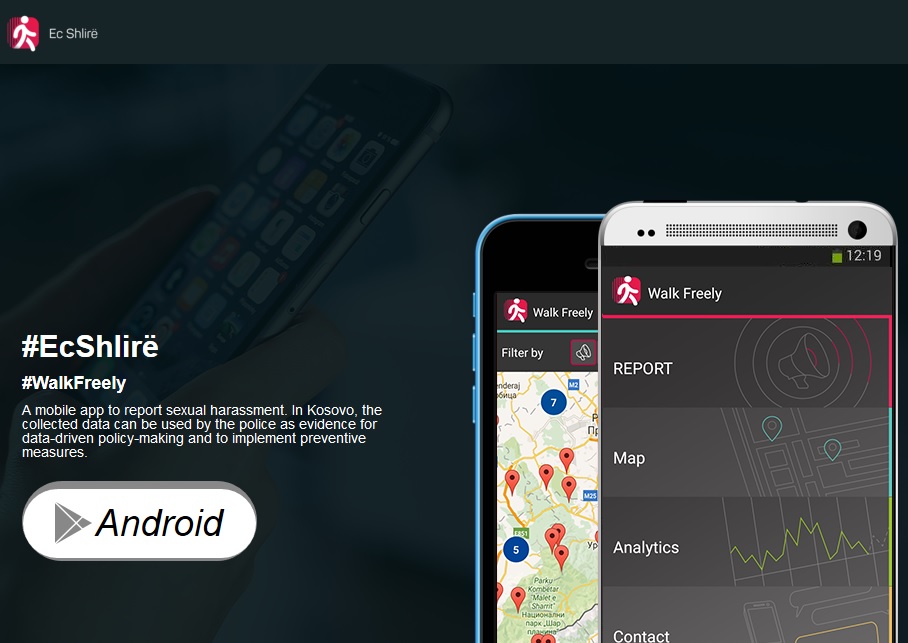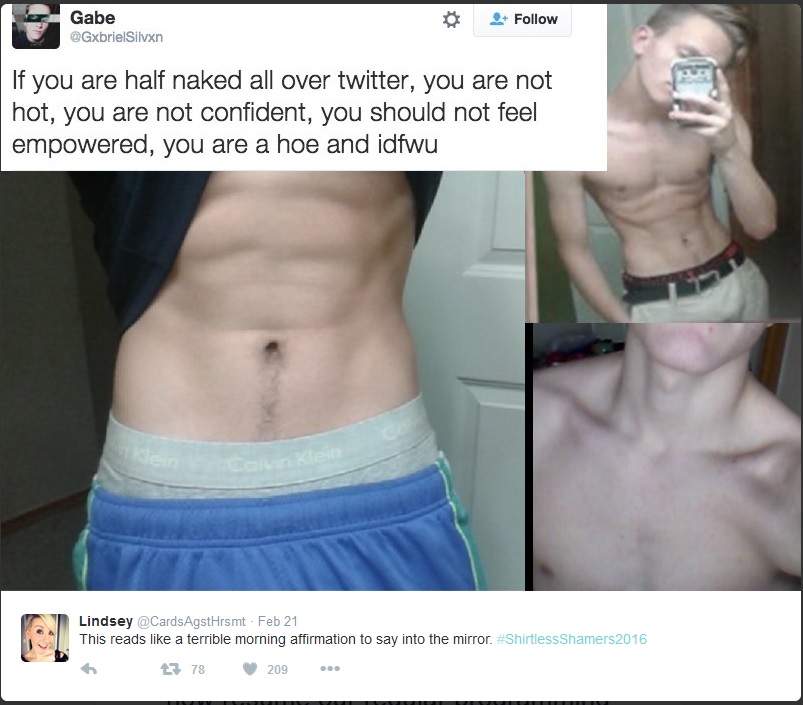Here are some of the recent news stories that caught my attention (excluding ones I’ve already blogged about):
Manchester Evening News, “Women lead Reclaim The Night march through Manchester to highlight sexual violence.”
“University of Manchester Students’ Union women’s officer, Jess Lishak, said the Reclaim march will draw attention to street harassment and sexual violence against women while creating an empowering event for women.
She said: “Reclaim is about taking to the streets without the fear of being harassed and abused.
“The number of people talking about this has definitely increased. We are putting the message out there that we are against victim blaming, sexual violence and street harassment and we will support anyone affected by it.”
The first coordinated Reclaim the Night marches started in 1977 when torch lit marches were held in Leeds, York, Bristol, Manchester, Newcastle, Brighton and London.”
GOOD, “Las Hijas de Violencia, a Female Punk Group, Battles Catcalls With Confetti“
“Las Hijas de Violencia (Daughters of Violence) is an all-female punk group in Mexico City that is fighting street harassment through performance. “When we are walking down the street and someone harasses us in any way,” says member Ana Karen in a video from AJ+, “we run after the person, grab our confetti guns, shoot once, we turn on the speakers and sing ‘Sexista Punk’”—their song about weathering catcalls.
“What you’ve just done to me is called harassment/If you do this to me this way, I will respond,” the lyrics go.
“We must respond,” says member Ana Beatriz. “We can encourage more women to do the same.”
“We recommend that you have fun with it, so you aren’t left feeling violated from what happened,” Ana Karen adds.“
The Tribune India, “Women commuters ‘violated’ by highway goons“
“Vehicles with women passengers were reportedly stopped on the national highway near Murthal in the wee hours of Monday morning, they were dragged out into the nearby fields and raped. Though the police dismissed the incident as rumour, eyewitnesses said at least 10 women were sexually assaulted. Even worse, the victims and their families were reportedly advised by the district officials not to report the matter to anyone “for the sake of their honour”. [Unbelievably horrible!!!!]
NPR, “Teasing A Girl At A Pakistani Park Could Get You Whacked With A Stick“
“Mohammed Sayed is not one of those people who particularly relish the prospect of hitting young men on the butt with a big stick.
But he is certainly prepared to do so to defend the girls and women who frequent the neatly groomed, palm-dotted municipal park in the Pakistani city of Gujranwala where he works as a guard.
The park was designed as a place for relaxation and family recreation (it even includes some ramshackle carnival rides). But it had turned into a prowling ground for young men.
So city authorities have asked a team of guards — including Sayed, 25 — to patrol the park and stamp out “Eve-teasing” — a South Asian euphemism for the sexual harassment of women by men.”
Medium.com, “Why Women Smile at Men Who Sexually Harass Us“
“The truth is, we don’t have the luxury to ignore harassment. We engage, we’re kind, because that is what keeps us safe.
And now it’s time for everyone to engage.
If you’re tired of hearing about women being harassed, tired of us sharing our stories about it, maybe that’s because you’ve been ignoring it, and we don’t believe that you should have that luxury anymore, either.”
Guardian, “Portugal has made street harassment a crime, why hasn’t the UK?”
“Deciding that legislation may not be the most effective way forward shouldn’t mean shrugging our shoulders and accepting that the problem will inevitably continue. Ironically, one preventative measure that could be more effective than new legislation would be the discussion of such issues, and of young people’s right to bodily autonomy, in compulsory school sex-and-relationships classes – a measure the UK government recently rejected, reportedly in the face of strong objections from female members of the cabinet.
Even if new legislation is not the answer, this is an issue on which our political leaders have an opportunity to impact societal norms simply by raising awareness of laws that are already in existence and ensuring they are taken seriously.”
New York Times, “Street ‘Compliments‘”
“Occasionally, a guy in the street signals that he needs my attention. So I take off my earphones to hear what he has to say. He could be looking for directions in the big city. But usually, it’s, “Excuse me, I just have to tell you how attractive you are.” This annoys me, as if my purpose in life is to be pretty. I get that no one likes rejection. So “Go away” is not a polite response. But “Thank you” sends the wrong message. I am not thankful. These comments ruin my groove. Thoughts? – ALYSSA, SAN FRANCISCO
At first (male) blush, I thought: “God! I wish someone told me I was hot.” But I quickly came to my senses. Men and women are different, especially when it comes to other people trying to control our bodies. Case in point: These men feel entitled to stop you in the street for the sole purpose of rendering judgment on yours. And when you factor in the annoyance of taking out your earbuds, and interrupting Joni Mitchell’s “In France They Kiss on Main Street,” I came close to endorsing your “Go away” response.
Two things stopped me. Strangers in the street can be dangerous, particularly to women. And I don’t want anyone getting hurt on my watch. I would rather you keep your earbuds in and pretend you don’t notice these attempts to flag you down than get into tussles with strangers over male privilege. But if you are determined to engage, borrow the terrific sentiment of Canadian Prime Minister Justin Trudeau: “Dude, it’s 2016!”
Many readers will see no harm in a compliment, particularly from a guy who is sincere. But he is not complimenting anything Alyssa has made (her new app) or even anything she’s chosen (her super-cute bootees). He is reducing a whole person — and rarely a man — to her looks. And if a compliment makes you feel bad, how good can it be?”
New York Times, “Renewed Efforts to Stop Subway Sex Crimes“
“Opportunistic sex crimes aboard subways are not new, nor are they news to many women. Some have been grabbed or leered at by a man who is masturbating. Many others have heard a story from a friend who felt an uncomfortable touch but was unsure if she should say something.
But cellphone cameras and social media have given women tools to fight back and provided the police a way to identify some offenders. Last year, in an effort to encourage more victims to come forward, the police began training more female officers to work the cases.
The police now send out a steady stream of alerts about such crimes using photos from victims’ phones to try to identify suspects. One recent Twitter post shared a photo of a man suspected of grabbing a 27-year-old woman’s buttocks on a No. 7 train in Queens this month. Two days earlier, the police posted a photo of a man who they say exposed himself to women on two trains at Grand Central Station.
Reported sex crimes on the subways rose 19 percent last year, to 738 from 620 in 2014. Many of those crimes were forcible touching and public lewdness, the offenses most commonly charged in connection with the sort of sexual misconduct that Detective Cross and his colleagues were on the lookout for that morning on the Lexington Avenue line.
Joseph Fox, the chief of the Transit Bureau, said he believed the increase in reported sex crimes was a result of more women coming forward. He expects the number of reports will keep rising as the police continue to talk about the problem.”
YES! Magazine, “Feminist Scooter Gangs Shut Down Street Harassment“
“In 2011, alongside the Arab Spring and massive citizen protests in Tahrir Square, Egypt’s pervasive problem with violence against women was exposed to the world. Reports of horrifying mob attacks against protesting women, videos exposing the oppressive atmosphere of harassment, and numerous articles by Egyptian women revealing the extent of the problem led the Thomas Reuters Foundation to name Egypt the worst country in the Arab world for women.
For episode seven of A Woman’s Place, Kassidy Brown and Allison Rapson flew to Cairo to find out what’s being done to end gender-based violence in Egypt. From the creators of the viral video Creepers on a Bridge who used a hidden camera to document street harassment, to the volunteers at HarassMap who map out incidents of sexual harassment and assault across the country, to the organizers of Girls Go Wheels who whip past potential harassers on their scooters, Brown and Rapson discovered Egyptian women are finding creative ways to empower each other and push for change.
“The energy is hard to describe, but it’s heavy,” said Brown. “It’s the energy from the men on the street, who are just everyday citizens. It’s that the type of stares you’re receiving are so threatening.”
“Think of a time when you’ve been out walking alone, and suddenly the energy around you changes,” Rapson said, “And you can’t necessarily explain why that is, but you don’t feel safe and you want to rush home. That’s what Cairo feels like.”
Medium.com, “To Men I Love about Men who Scare Me“
“Decent male humans, this is not your fault, but it also does not have nothing to do with you. If a woman is frosty or standoffish or doesn’t laugh at your joke, consider the notion that maybe she is not an uptight, humorless bitch, but rather has had experiences that are outside your realm of understanding, and have adversely colored her perception of the world. Consider that while you’re just joking around, a woman might actually be doing some quick mental math to see if she’s going to have to hide in a fucking bathroom stall and call someone to come help her, like I did three days ago.
Please adjust your mindset and your words accordingly.”


